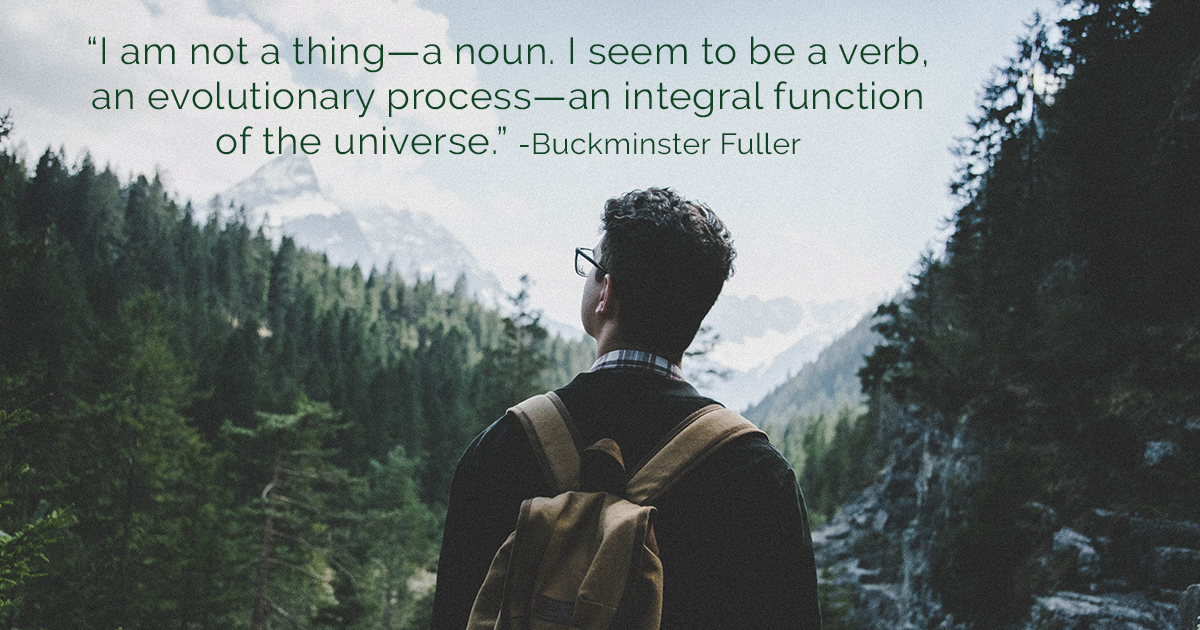This entry* on attention is the final one of a five-part series on what we know about the impact of contemplative practice on the human brain and the relevance of these findings to doing meaningful work in groups. The first entry introduces this series and describes the impact of meditation on whether we can respond effectively to disturbing events instead of reacting to them. The second one investigates resilience; the third considers empathy and compassion; and the fourth investigates the impact of meditation on our ability to pay attention.
You know who you are, right? You have lots of ways to describe yourself. Some of mine are “tall, smart, occasionally shy, well read, self-critical, movie lover, hiker, facilitator, writer, and too attuned to politics for my own good.” How do you describe yourself?
Such descriptions come from and get supported by the default function in the brain that comes alive when we are “doing nothing.” It turns out that there’s a lot going on in our brains when we are “doing nothing.” Most often the mind is wandering, focusing on “I” and “me,” and generating stories about who we are.
Like me, you have probably used a series of nouns to describe yourself. But is this who I am or who you are?
What if both you and I were to perceive ourselves as complex collections of experiences, desires, memories, thoughts, emotions and body sensations that are in constant change?
Take a few quiet moments to pay attention to thoughts, body sensations, and emotions. Are they static or dynamic? If you are able to pay attention without judging your experience, you might notice how all of these keep changing and interacting with one another. Your thoughts shape your emotions that in turn influence your body sensations that in turn affect your emotions and thoughts, all in a web of reciprocal causality and change.
In other words, we appear to be continually in process, always changing, more like verbs than nouns. As Buckminster Fuller once remarked, “I am not a thing—a noun. I seem to be a verb, an evolutionary process—an integral function of the universe.” Meditating is one way to get closer to being able to clearly observe this process and actively participate in it.
According to the research summarized in Altered Traits by Daniel Goleman and Richard Davidson, meditation quiets the default function in the brain or the “monkey mind,” that incessant, self-focused chatter that engenders a fixed sense of self. In addition, meditation appears to diminish connectivity among areas of the brain that engender a solid sense of self.
Meditation also enlarges a part of the brain called the insula, enabling us to be more aware of our internal state because it monitors and perceives bodily sensations or signals in the body. My experience is that this increased internal awareness enables me to notice the mercurial nature of my thoughts, emotions and body sensations.
If who we are is more fluid than we ever imagined, then what might be possible if each of us were to bring a dynamic sense of self instead of a fixed one into our interactions? A “self” that experiences and accepts that we both are influenced by and are shapers of our experience in meetings.
If I am no longer defending a fixed “self” and am paying attention to the body sensations, feelings and thoughts as they alter in response to listening to others and to myself, how much more vibrant might meetings be? What new solutions or ways forward might emerge?
Thinking of ourselves as nouns keeps us stuck and gets in the way of opening to learning and creating new possibilities. A fixed sense of self also creates a sense of separateness that undermines the experience of how we are connected.
In those rare and life-giving moments when I let go of the burden of defending a fixed sense of “self,” I speak from a more alive, deeper, and wiser place. Perhaps more importantly, I help engender that place in others and together we become a part of the universe’s evolutionary process.
*Some of the material in this blog is adapted from my book “Talk Matters! Saving the World One Word at a Time”


I love this concept! It makes so much more sense than being static or seeing ourselves as static.